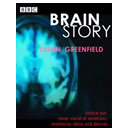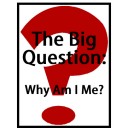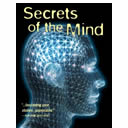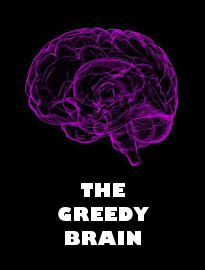Brain Story
 Why do we think and feel as we do? For years man has sought to understand the workings of the mind. Now, with advances in modern-day technology and developments in neuroscience, a whole new world of brain research is opening up.
Why do we think and feel as we do? For years man has sought to understand the workings of the mind. Now, with advances in modern-day technology and developments in neuroscience, a whole new world of brain research is opening up.
Understanding our minds is becoming a reality. Guided by top neuroscientist Susan Greenfield, Brain Story attempts to answer the question "What is my mind and who am I?" We talk to philosophers, clinicians, neurosurgeons and their patients to discover quite what a finely balanced and complex machine the brain is.
All in the Mind. Susan Greenfield explains why she believes all aspects of human experience will eventually be explained in terms of the physical processes of the brain. The story of how we have gradually come to understand the astonishing complexity of the brain is revealed, from the earliest crude studies of the effects of brain injury, through to the latest insights from direct stimulation of specific areas in patients undergoing brain surgery whilst wide awake. Is it possible that our most spiritual feelings are merely the result of electrical activity in the temporal lobe?
In the Heat of the Moment. Where do emotions come from? Why do they feel so different from thoughts? Susan Greenfield looks at some of the old attempts to explain emotion in terms of brain areas and explains why she believes the answer must lie in the biochemistry of the brain – all the hundreds of chemical neurotransmitters which bathe the nerves.
The Mind's Eye. The illusion of vision. It feels as though we open our eyes and just see what’s out there, but the more we learn about the brain’s visual system, the further it seems this is from the truth. Patients who can’t see movement or recognize faces, reveal the tricks and short cuts the brain uses to construct an illusion of reality. Is the brain making up so much of what we think we’re seeing that vision is really just dreaming with your eyes open?
First Among Equals. What is it about brains that has put us in charge of the planet? Were have humans’ unique linguistic abilities come from? Are there special structures in our brains which no other animals possess? Or is it possible that our sophisticated rich cultures are merely the result of having larger brains? Susan Greenfield explains why she believes we are truly just big-brained chimps.
Growing the Mind. The changes in the brain during the growth and development of a baby into an adult are explored. Susan Greenfield looks at how little of the fine structure of our brains is predetermined at birth, how the connections between nerves are constantly changing in response to what we encounter in the outside world. She explains her view that learning, memory and even the process of becoming a unique individual, should all be seen as a restless brain adapting minute by minute to the environment it encounters. Life is about how the world leaves its mark on us.
The Final Mystery. How do our brains generate consciousness? We take it for granted that the brain makes being alive feel the way it does, but there’s no reason why it should.The brain is made of the same biological ingredients as the rest of the body, and yet somehow it manages to generate the indescribable phenomenon of consciousness. Consciousness is far more than just being able to imagine; it’s a whole extra dimension.




Fantastic Job
"For centuries Man has sought..." Really, I'm not crazy about gratuitous political correctness but honestly, how long does this basic acknowledgment take? How about 'humankind' or 'humans' or 'people'? This is especially old world and out of date in this blurb which is about a particular woman's research. Does anybody proof read anymore? Apparently Woman is searching for understanding too.
Continuing my instruction about the brain, after reading Damasio's "Descartes Error" it's amazing to have images about what I learned. Thank you!
Isn't Religion the Invention of Human Race after being in awe (Fear mixed with Respect) of The Nature Around.... That is what is termed as the PAGAN Religions.... or Religions who had Pagan Origins... So In that true sense it was Human Inquisitiveness/Fear that led to the INVENTION Of RELIGIONS.... And I guess human brain had still not developed at that time (logical) to embark on Scientific explanations... And as that happened, there was this conflict of Science and Religion... Why should it be? Science Still does not Have all the Answers.... And Religion will continue to provide Pivot for FAITH, where Science and Laws fail Good Human Beings..... For the rest there are various types of SHRINKS....
People are really good at making stuff up. Religion.
We 'dominate' the planet... yeah... let us 'conquer' space... you can not slap down nature... she will slap you back 100000x harder. We need to change many of our words to be more realistic. Like we have begun DESTROYING the planet by our attempts to DOMINATE it.
how the brain works while sleeping ?
Philosophocles, that was a brilliant point of view...
Very interesting doc. I like how she presents all her findings and studies as theories. I love seeing how people come to their conclusions and present them without trying to force them on anyone else. I believe that is true knowledge. Analyzing and understanding for yourself.
Truly intelligent beings would never try to make someone else understand their view. One thing we do all know (without science), is that understanding cannot happen through osmosis. In other words, understanding can only arise in one's own mind. Sharing views is great, but stating them as fact (which a lot of people LOVE to do) is completely contradictory. Stating as view as fact, even with all the evidence in the world, will never help anyone else understand it. If I remember correctly, everybody once thought cigarettes were not harmful. Even doctors and nurses smoked in the hospitals. That view was a fact. Now its completely reversed. Facts don't prove much, its understanding and analysis that truly win the war. When we stop analyzing, we stop learning. I personally don't accept any theory without analyzing it myself, no matter how much proof someone presents.
What I mean to say is ... Great Doc. Thanks again Vlatko :)
For having a western philosopher's nickname, you sound pretty much like a eastern one.
The eastern philosophers (and by philosophers I include every active human being) overall viewing of the world is that everything is in everything, and therefore if you want to explain something you need to explain everything. Now what's interesting to note is that this philosophy leads to a really slow process of evolution (China were a civilization long before "Great Britain" and France...) because it's leading to a view of the world that is self-sufficient. In other words, if everything is in everything, there is no paradise because the paradise is here, and by paradise I mean any state enhanced by imagination.
The western philosophers, on their side, where at the opposite. They thought this world wasn't perfect at all. They thought there was "someone" or "something" "somewhere" who was "infinitely filled with love". They were "reductionists". This philosophy leads to what we all know : a never-ending search for "elements of proof" about what we ultimately set all this up for : is there a God? (aren't the world's best scientists working right now on that in the LHC?) Reductionists aren't afraid of taking a single element and try to explain it completely. Of course, a scientist will never admit that he can't explain something 100% even if he know he can't : if he thinks about it, he may never get to the other step.
That's my personal conclusion : answers only serve to get us to the next step of questioning.
That said, I think we must all remain careful about what we say. Suggesting that "trully intelligent beings" should act only the way that arrange us the most is really unsafe.
Ultimately, my viewing is this : there is always two side, two ways, two possible answer to a question (I know there is more, but again, ultimately) : right or wrong (or left or right, like we have in politic, for example). Now we all know that at the deepest level, there is no such thing as right or wrong, but that's at the Deepest level, and we must admit that we don't live there, but that's where we want to go, that's the "paradise", the "balance", the "truth" or the "absolute". The tightrope, not to fall, has to keep deviating; not violently, but certainly. Well that's us, living things : not dead yet, we are all subjects, and if the "God" or the "absolute" is what we call "objectivity", therefore, we can never be objective since we are still subjects.
So my conclusion is : if you were really thinking what you were saying, you wouldn't have feel the need to communicate it.
We are alive to make mistakes. We desperately try to be perfect, but at the moment we think our thoughts are just right, just perfect; at this precise moment, we lose it.
In this world, when you are wrong you can't be more wrong. So when you are not wrong, you can be more wrong.
But don't get me wrong : I appreciate your point of view!
@Philosopocle I don't think it's quite that simple, not to mention you're portraying science dead wrong. When you mentioned that everyone once thought cigarettes weren't harmful, that statement actually had little to do with actual science. It wasn't toted as scientific fact, nor was it actually scientifically legitimate to call it "fact" without any valid long-term studies to refer to at the time. What you're talking about is advertising propaganda and the big advertising business' collusion with medical doctors (who in my opinion are way too quick in lending their names to a statement, as long as it makes them a buck).
It's the same thing with marijuana a couple of years ago. If you asked trained medical professionals back then if marijuana was beneficial in any way shape or form they would have said no simply out of habit of their training and the social climate at the time (there was a huge taboo on drugs overall in the 90's). Not because they actually studied it and observed its use in humans, but simply because that's what they' were "supposed' to say. That is dogma, not science. It takes a scientific undertone simply because it's the medical doctor that perpetuates it, but it doesn't make it any more scientific than common hearsay. Something like that really has little scientific basis. The medical and drug world overall is so corrupt with money interests that it literally turns doctors into mouthpieces for advertising companies who need the public to believe whatever crap they dish out in order to sell dubious products.
Facts involve credible, peer reviewed scientific evidence. That is not the same as mindlessly repeated dogma; that is a human element, not a scientific one. Whether or not people believe it or not en masse does not make it any more scientific. In effect, your example is little better than using the flat earth belief of the early 1400's in order to exemplify the ambiguity of science, it's just not a proper analogy.
The idea that only we can only know the truth for ourselves, within our own minds, is complete and utter foolishness in the sense of observing nature. Now I don't care if you believe this world is a hologram, or you believe in God, or whatever, but what we observe on this planet is the only thing we can regard as the truth in relation to one another -- everything else is conjecture and insanely subjective; anecdotal. This way of thinking easily leads to delusional thought processes and heightened credulity in regard to whatever bias your brain is set up to create for itself.
Any strong, credible, and justifiable understanding in science goes through a highly scrutinized peer-review process in order to eliminate personal bias so that dogma does not become a concern. Good scientists don't care what the general consensus is on any particular topic because science interacts directly with nature and the observations at hand. The human mind tends to jump to conclusions and make up stories to explain certain uncanny anomalies and thus you get some strange beliefs based on pseudo-science -- or rather, incomplete scientific understandings...
Lastly, theory is simply the safest way to portray something that we don't yet fully understand. It is not something we choose to be "right" for ourselves. You can't say "well I believe this and I don't care if there's no evidence for it, it's right for me". That is delusion, which oddly enough I find to be a major virtue in the world of creationists and people who claim to be 'spiritual" (whatever that means).
i think its quite amusing how we need to use our brains to 'correct' the audio/video streams of a docco about the brain.
yeah its a bit annoying but then i'd still rather watch this than not watch it. its still a fascinating subject.
This documentary is pretty good but like Tyler says, the sound quality is not the greatest. The quality itself is fine but the delay between sound and video is definitely substantial and detracting. I really wish google video would figure out how to auto-fix stuff like that - it generally seems to happen after someone uploads it and google converts it to their FLV format.
Good documentary if you're interested in the brain though, very extensive and quite easy to understand.
I really like this stuff, but the sound is pretty bad. It clips a lot, and it's a bit off track, at least for the "Mind's Eye" one.